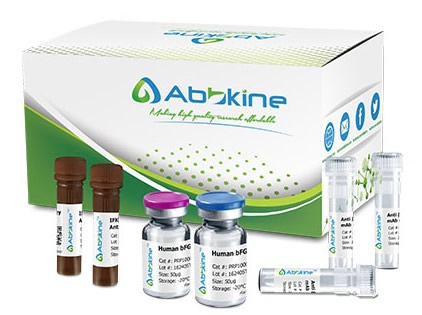Pancreatic polypeptide (PP) is a 36-amino-acid secretory peptide that is predominantly produced by the pancreas. The exact physiologic role of PP in healthy individuals has not been fully defined. This peptide affects the secretion of pancreatic enzymes, water, and electrolytes. Its effect is biphasic in that PP initially enhances secretion and then inhibits secretion. PP increases gastric emptying and gut motility. It also relaxes the pyloric and ileocecocolic sphincters, the colon, and gallbladder. PP levels increase after ngestion of food and remain elevated from 4-8 hours. Prolonged fasting, diabetes, and exercise can also increase PP levels. Serum PP levels can be elevated in as many as 50% of patients with carcinoid syndrome. Increased levels can also be found in patients with duodenal ulcers and in patients with type I diabetes.
Chicken Pancreatic prohormone (PPY) ELISA Kit employs a two-site sandwich ELISA to quantitate PPY in samples. An antibody specific for PPY has been pre-coated onto a microplate. Standards and samples are pipetted into the wells and anyPPY present is bound by the immobilized antibody. After removing any unbound substances, a biotin-conjugated antibody specific for PPY is added to the wells. After washing, Streptavidin conjugated Horseradish Peroxidase (HRP) is added to the wells. Following a wash to remove any unbound avidin-enzyme reagent, a substrate solution is added to the wells and color develops in proportion to the amount of PPY bound in the initial step. The color development is stopped and the intensity of the color is measured.
Chicken Pancreatic prohormone (PPY) ELISA Kit listed herein is for research use only and is not intended for use in human or clinical diagnosis. Suggested applications of our products are not recommendations to use our products in violation of any patent or as a license. We cannot be responsible for patent infringements or other violations that may occur with the use of this product.
bio-equip.cn




